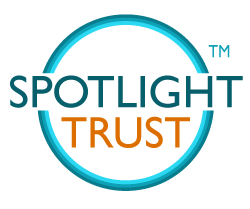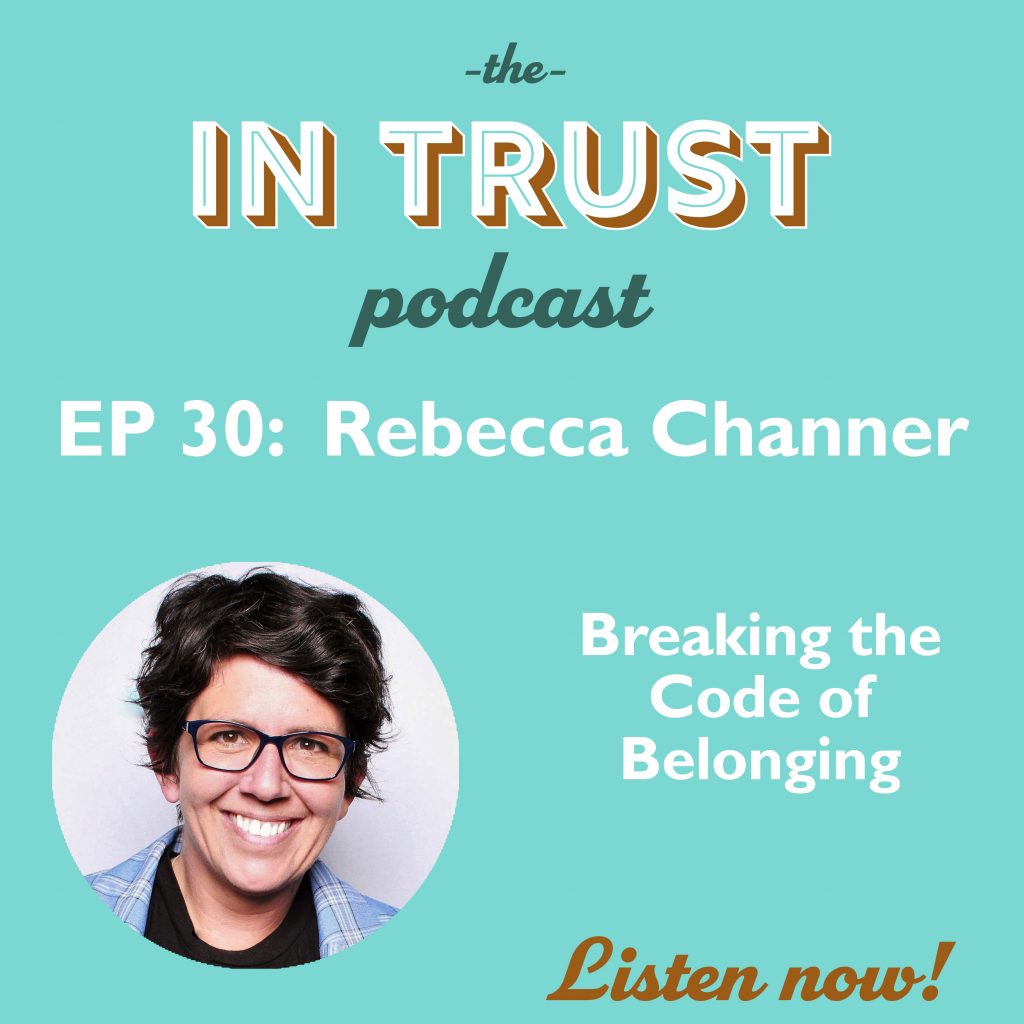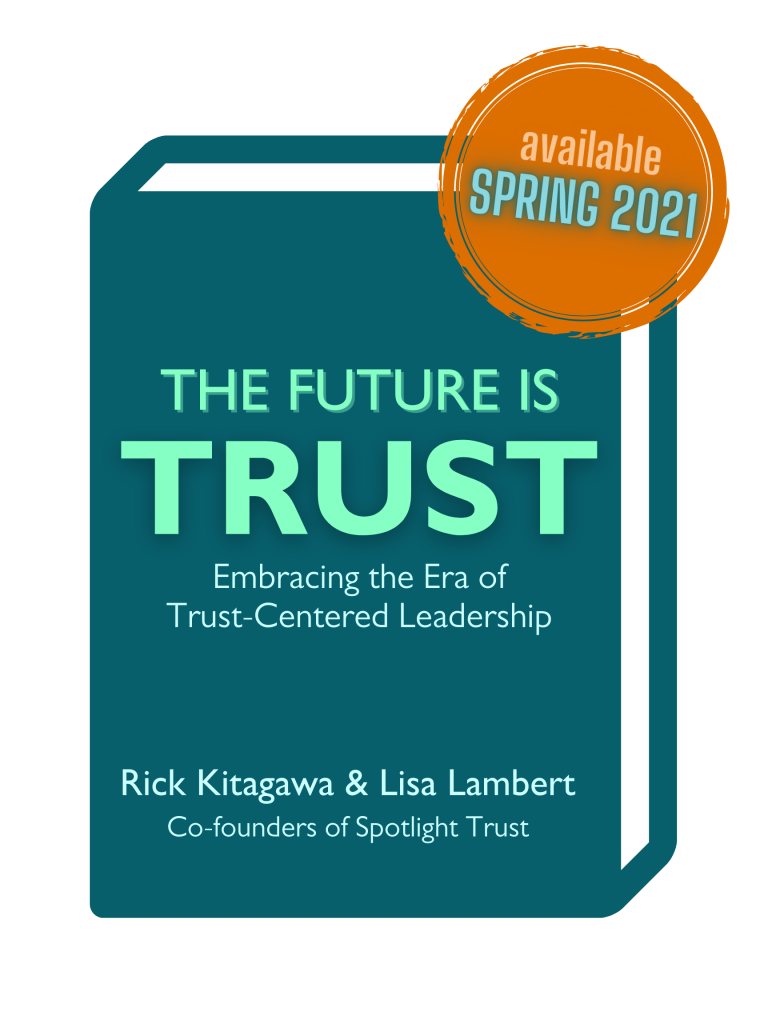How do you move beyond the idea of belonging to take meaningful action that builds and repairs cultures and communities in a way that actually roots them in belonging? How do we build a future for young people that fits them versus asking them to fit the future?
These questions merely scratch the surface of a conversation we recently had with our friend and colleague Rebecca Channer. Rebecca is the Founder and Team Lead at CodeBreakers, a vibrant online space for young people (ages 13-23) who have been historically underrepresented and/or racially minoritized within their communities, schools and workplaces. With multiple CEO and executive director titles in the nonprofit and startup space under their belt, Rebecca leads a team of adult allies, co-conspirators, and accomplices known as the CodeBreaker Bench that support young people in exploring identity and expanding capacity for reaching personal, educational, and professional goals.
We cover a lot of ground in this conversation, including how it’s okay to be nervous and make mistakes when talking about topics like race, diversity, inclusion, and belonging; the importance of representation in trust-building, the reason why many organizations don’t focus on culture, diversity, inclusion, and belonging as actions versus ideas and the faulty assumption behind this; and much more.
If you’ve ever struggled to feel belonging or are interested in building a culture of belonging anchored in actions versus ideas, then you won’t want to miss this episode of the In Trust podcast.
Overview of Episode 30: Breaking the Code of Belonging with Rebecca Channer
Talking Points
- How CodeBreakers goes about supporting young people who are working through life’s barriers, specifically young people who have perhaps like the intersections of many different identities
- What code switching is and the connection between CodeBreakers and code switching
- A decision Rebecca recently made to help them be more congruent with who they really is
- The influence Rebecca’s mom has had on their leadership
- The importance of separating the behavior from the human being behind it and finding some compassion in your heart
- How leading with trust attracts people you can trust
- How Rebecca’s integrity, consistency, thoughtfulness, and caring have led both Rick and Lisa to develop a deep level of trust with them
- How being truthful and genuine in our communication supports greater equality and greater equity for all people
- How Rebecca thinks about CodeBreakers business model and how to evolve it given the work to do in our society right now
- Why Rebecca and the CodeBreakers Bench have chosen to build the CodeBreakers community out loud, in community.
- How representation is critical to practicing and embodying trust
- How, even as someone who leads an organization that centres on conversation relating to race, diversity, inclusion, and belonging, Rebecca gets nervous talking about these things
- How making mistakes in conversations about race, diversity, inclusion, and belonging can create opportunities to repair and rebuild trust
- The reason why many organizations don’t focus on culture, diversity, inclusion, and belonging as actions versus ideas and the faulty assumption behind this
- How Rebecca has learned to trust in themself by being very careful about choosing the people they spend time with
- How Rebecca is intentional about allowing on a daily basis for them to feel like they trust other, that others trust them, and that Rebecca trusts in themself
- How self trust is an ever-evolving experience
- How Rebecca builds self-trust by focusing on doing what they can with what they have and how this gives a lens to what true equity is
- How we don’t become successful simply by doing exactly what some other successful person did
- The importance of constant experimentation
- Why community and the people Rebecca has in her life are everything to them
- The power in acting out of love in leadership
- What’s next for CodeBreakers and how you can offer support
Quotables
“I dream of a world where code switching is no longer necessary.” – Rebecca Channer
“We want to build a future for young people that fits them versus asking them to fit the future.” – Rebecca Channer
“It’s pretty meaningful if just one person holds that space for you and they happen to be a parent.” – Rebecca Channer
“There’s something when you lead with this feeling of, ‘I’m going to trust you,’ which is high risk behavior. But I feel like if I lead with that, it seems like I attract people that I can trust.” – Rebecca Channer
“The more we can be truthful—which is a I find a word that people are much less allergic to than transparency— and genuine and authentic about who we are what we have to offer in our communication, the higher the likeliness of greater equality and greater equity existing for all people.” – Rebecca Channer
“Let’s get out of our own little container. Let’s get out of our own heads and let’s put some of this out there. Let’s talk to the people in our community. Let’s talk to the people who might want to invest in us. Let’s talk to the parents and the families about it. Let’s have them figure it out with us. And that, to me, I hope will equal enrollment and investment and participation. It might not, but I think it’s pretty highly likely it will.” – Rebecca Channer
“For me, the fundamental place for me to build trust is who I’m working with, who I’m building something with. And then, as we begin inviting people into what we’re building, whether they be supporters or investors or customers or clients, then we have to focus on building trust with those folks.” – Rebecca Channer
“What I really noticed in so many different spaces with so many different organizations who are in such different stages of growth is that, nine out of 10 times, questions about culture, tending to culture, stewarding culture, and even understanding the culture that you want in an organization always come up much later when you realize something’s gone wrong, or somebody finally raises their hand and says, ‘this is not okay with me.’ Then the effort that it takes for those organizations to go back and basically unwind and then re-weave the company’s culture is extremely expensive. It’s extremely time consuming. And it’s incredibly complicated because you have so many people who have already been harmed.” – Rebecca Channer
“For us at CodeBreakers, representation is like a way we practice and embody trust.” – Rebecca Channer
“When we talk about social services and tending to our community, representation is a critical way to create trust.” – Rebecca Channer
“I want to be talking about things related to race and diversity and inclusion and belonging, but I make mistakes all the time. And so I’m nervous. And what I realized is that it’s okay to be nervous. It’s okay to make mistakes, because that’s an opportunity to repair. I learn more things about myself and other people in the process of repairing and rebuilding trust than I do in almost any other area of my life.” – Rebecca Channer
“I think the reason a lot of companies, especially startups, don’t focus on culture, diversity, inclusion, and belonging as actions versus ideas—especially early on—is because in some ways, they’re expensive. They take time away from doing the work. But that assumes that you think the work is separate from your culture, and I don’t think they’re separate. And so to me, if we can’t get this organization off the ground from a financial place and do the work without also tending to a culture and who we are and how we show up for one another, then it’s not worth it to build it at all. So it’s got to be a ‘both/and,’ or a ‘yes, and,’—whatever you want to call it. It has to be both for me or it’s going to be nothing.” – Rebecca Channer
“There’s something very powerful to me about choosing the people that you spend time with very carefully. Because I think what is necessary is to know these people well enough to be able to trust yourself. To trust them and then to feel that being reciprocated. I don’t feel like I have learned to trust myself by myself. It’s a relationship experience for me.” – Rebecca Channer
“Am I doing something that feels congruent with who I am? Or am I doing something that feels like I should, would, or could, because every time I do something that somebody else or that that society told me that I should be doing is the instantaneous moment where I lose trust with myself again.” – Rebecca Channer
“My job as a human is to take that in from society, from people from, some of my family members about how I should be leading my life, how I should be making decisions, and let those roll on by me. So one of the most important ways that I’m learning to trust myself is to not live by, as my mom would say, ‘stop shoulding on yourself.’” – Rebecca Channer
“I practice every day saying yes to the things that I know I can do with what I have. The days that I trust myself most are when I know that I’m doing what I can with what I have, versus trying to do something that someone else did, with things that I don’t have.” – Rebecca Channer
“True equity is making space for people to do what they can with what they have.” – Rebecca Channer
“Be you. That’s the crux of leadership, in my opinion as a human being is to show up as the most genuine version of yourself.” – Rebecca Channer
“Constantly be experimenting, and not just with your ideas, but with the people who are in your life, with conversations. See life as an experiment. It is kind of all made up—potentially—so why not just keep experimenting and seeing what works, and not get yourself so tied into ‘it has to be this way’? Because we honestly have no idea what’s going to happen in the future.” – Rebecca Channer
“The thing that keeps bringing me back to a place of feeling like I belong somewhere, of feeling like it’s worth it to keep going, are my connections and the honest to goodness genuine feeling of love that I feel for the people who are in my life.” – Rebecca Channer
Show Notes
- CodeBreakers website
- CodeBreakers on LinkedIn
- One of the videos of Barack Obama that’s often referenced as an example of code switching
- NPR’s Code Switch podcast
This episode sponsored by:
The Future Is Trust
Embracing the Era of Trust-Centered Leadership
There’s a lot of uncertainty about the future, but one thing we are sure about is that The Future Is Trust. Which also happens to be the title of our forthcoming book.
The Future is Trust: Embracing the Era of Trust-Centered Leadership will be available in Spring 2021.
We are so excited to bring this reimagination of what a leadership book can be.
Check out thefutureistrust.com for book launch details, special previews, exclusive pre-order specials, and more.







